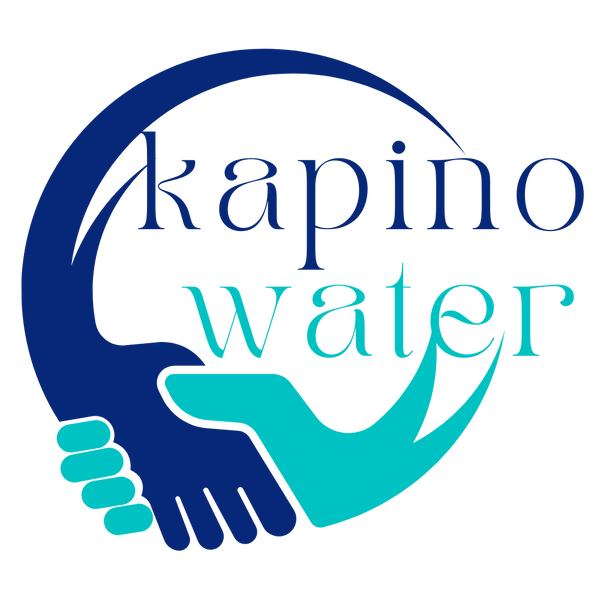
Hard Water vs. Soft Water: Understanding the Differences and Solutions
Share
Introduction
Water is essential for life, but not all water is created equal. Have you ever noticed white spots on your dishes or felt like your soap isn’t lathering properly? That’s likely the result of hard water. On the flip side, soft water might feel slicker and be kinder to your skin, but what does it all mean? Let's dive into the fascinating debate of hard water vs. soft water: understanding the differences, their impact on your home and health, and how the right filtration system can make all the difference.
What is Hard Water?
Hard water is water that contains high levels of dissolved minerals, primarily calcium and magnesium. These minerals are harmless to drink but can wreak havoc on your plumbing, appliances, and even your skin. Hard water is common in areas with limestone or chalk-rich soil, which dissolves into the water supply.
Signs of Hard Water:
- White, chalky residue on faucets, showerheads, and sinks (limescale).
- Soap that won’t lather easily, leaving you with that “squeaky clean” feeling.
- Stiff, scratchy laundry after washing.
- Dry, irritated skin and dull, lifeless hair.
- Reduced water flow due to scale buildup in pipes.
What is Soft Water?
Soft water, on the other hand, contains lower levels of calcium and magnesium. It’s naturally occurring in areas with fewer mineral deposits or can be achieved through water softening systems.
Signs of Soft Water:
- Soap lathers easily, leaving a silky or slippery feel on your skin.
- No scale buildup on faucets, appliances, or pipes.
- Softer, fluffier laundry after washing.
- Glassware and dishes come out sparkling clean, with no residue.
Hard Water vs. Soft Water: Understanding the Differences
When it comes to hard water vs. soft water: understanding the differences, it’s all about the minerals. Hard water is rich in calcium and magnesium, while soft water is relatively mineral-free. These differences might seem minor, but they can have a significant impact on your daily life.
Key Differences Between Hard and Soft Water:
| Feature | Hard Water | Soft Water |
|---|---|---|
| Mineral Content | High (calcium, magnesium) | Low |
| Soap Lathering | Difficult | Easy |
| Effect on Skin/Hair | Dry, irritated skin; dull hair | Soft, moisturized skin; shiny hair |
| Plumbing Impact | Scale buildup, clogs | No scaling, longer-lasting pipes |
| Laundry Quality | Stiff, faded clothes | Soft, vibrant clothes |
Problems Caused by Hard Water
Living with hard water might not seem like a big deal at first, but over time, its effects can add up.
1. Scale Buildup in Appliances
The minerals in hard water can accumulate in your dishwasher, washing machine, and coffee maker, reducing their efficiency and lifespan.
2. Dry Skin and Hair
Hard water strips away natural oils, leaving your skin dry and your hair brittle. This can worsen conditions like eczema or dandruff.
3. Higher Bills
Scale buildup in pipes reduces water flow, forcing your water heater and appliances to work harder. This leads to increased energy bills and costly repairs.
How to Address Hard Water Issues
Thankfully, you don’t have to live with the downsides of hard water. Modern filtration and softening systems can solve these problems effectively.
Water Softeners
Water softeners work by exchanging calcium and magnesium ions in hard water with sodium or potassium ions, reducing mineral content. Common systems include:
- Salt-Based Softeners: Effective but require regular maintenance.
- Salt-Free Softeners: Use a conditioning process to reduce scaling without adding sodium.
Reverse Osmosis Filtration Systems
For those looking for a more comprehensive solution, reverse osmosis (RO) systems—like the KW-01 Hydrogen-Rich Water Purifier—are a game-changer. RO systems remove not just calcium and magnesium but also harmful contaminants like lead, arsenic, and microplastics.
The KW-01: A Solution for Hard Water Challenges
While the KW-01 isn’t a water softener, its multi-stage filtration system, including reverse osmosis technology, tackles many of the issues caused by hard water.
Why Choose the KW-01?
- Advanced Filtration: Removes 99% of impurities, including heavy metals and microplastics.
- Hydrogen-Enriched Water: Provides health benefits like improved hydration and antioxidant properties.
- Eco-Friendly: Each filter eliminates the need for up to 8,000 plastic bottles.
- Multi-Temperature Control: Perfect for beverages and cooking, with instant hot or cold water options.
- Improved Water Taste: The strontium-rich filter enhances flavor while adding essential minerals.
FAQs
1. Is hard water safe to drink?
Yes and No, hard water is safe to drink, but in long term it may cause many health issues, affect water taste and lead to scale build-up in appliances and plumbing.
2. Can I soften water without a softener?
Boiling water can reduce temporary hardness by removing calcium carbonate, but it’s not a practical solution for daily use. A water softener or filtration system is more effective.
3. Does the KW-01 remove hardness?
The KW-01’s reverse osmosis system removes many impurities, including calcium and magnesium, effectively addressing the effects of hard water.
4. Will soft water damage my pipes?
No, soft water is less likely to cause damage. In fact, it prevents scale buildup, extending the life of your plumbing.
5. How do I know if I have hard water?
Look for signs like white residue on faucets, soap that won’t lather, or dry skin. You can also test your water with a home hardness kit.
Conclusion
Understanding the debate of hard water vs. soft water: understanding the differences reveals just how much your water quality impacts your daily life. While hard water can lead to dry skin, scale buildup, and higher bills, soft water provides a more comfortable and efficient solution. Whether you’re looking to soften your water or simply improve its quality, innovative products like the KW-01 Hydrogen-Rich Water Purifier offer a powerful way to enjoy cleaner, healthier water. Cheers to a better hydration experience!
